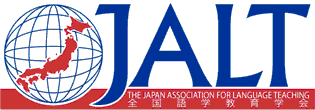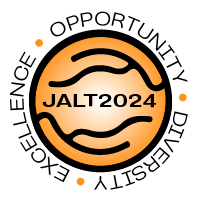12 May, 2018 - Stuart McLean
The Benefits, Challenges, and Results of a Research-based Vocabulary Program
Stuart McLean
Stuart McLean, of Osaka Jo Gakuin outlined the challenges he faced when creating a vocabulary based program at his university. He began by outlining a number of terms, focusing on the difference between vocabulary size and vocabulary level. In his findings, vocabulary size was useful for distinguishing different levels of students, but, was not a good indicator of the vocabulary level of the students. And because of this, there is a tendency to overestimate student ability based simply on their vocabulary size.
He argued that some of the most effective ways to learn vocabulary include using the L1 to make connections between the two languages and also to use multiword units. His testing method started with a small group of words, with weekly tests where new words were added and tested, but, the tests would also contain words from previous lessons instead of simply testing new vocabulary lists each week. He also argued for a focus on the first 1-3000 words of the NGSL as these would be most important to the students.
In his program they took 5000 words and then translated the word list. After that, they made audio recordings of the list and through applications like Memrise, created vocabulary programs for the students. Testing generally took about ten minutes.
Finally, he outlined some of the issues in taking this approach. The introduction of a new program found some resistance from faculty and it was somewhat difficult to convince them of the use of the new program, although, in the end he was successful in bringing the program into the class. He also emphasized the need to approach the teachers and get their support before implementing a program like this. Additionally, there are technical issues to overcome as well as simple physical issues of how to get the information into the hands of the students.
Link to meeting listing

